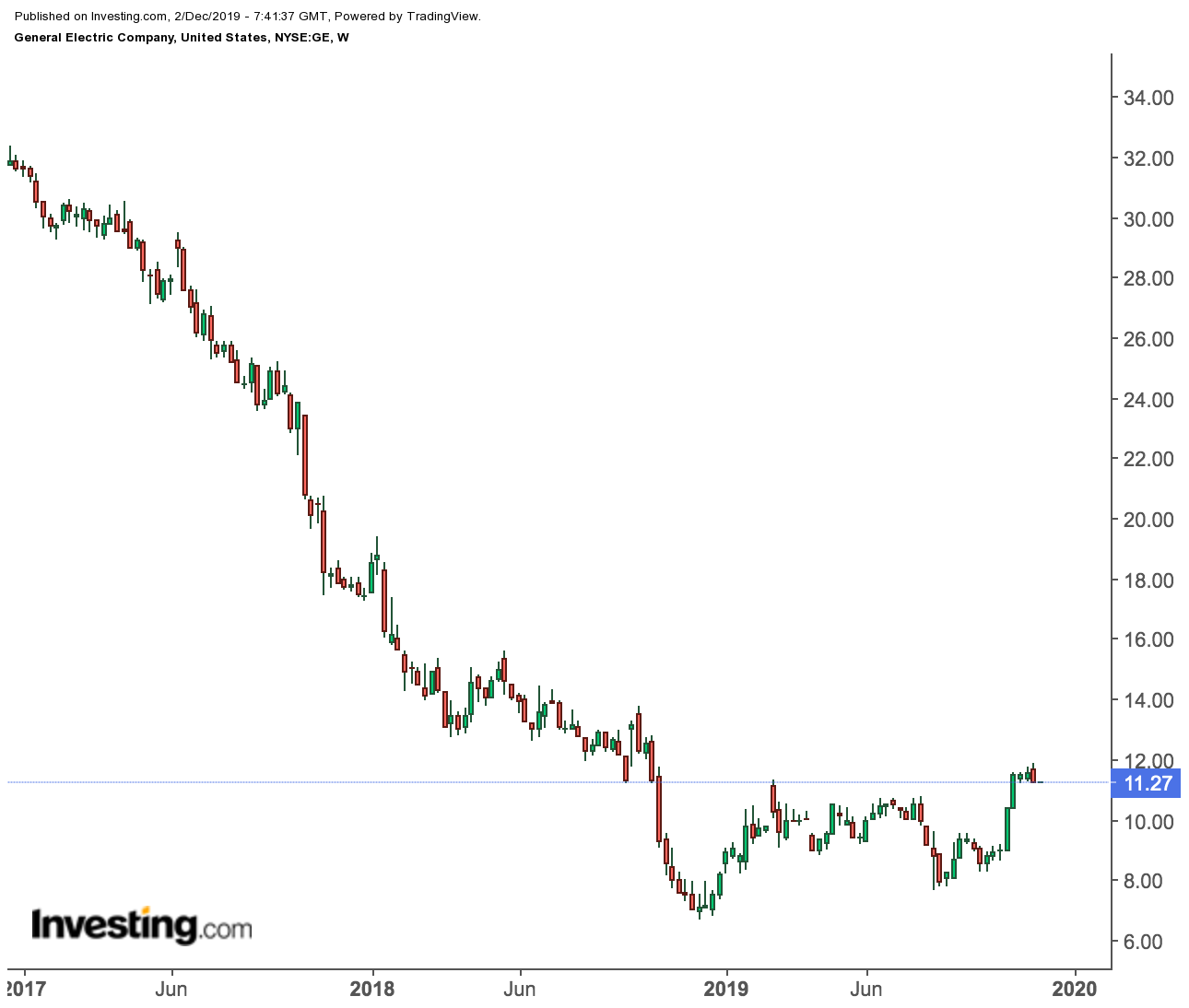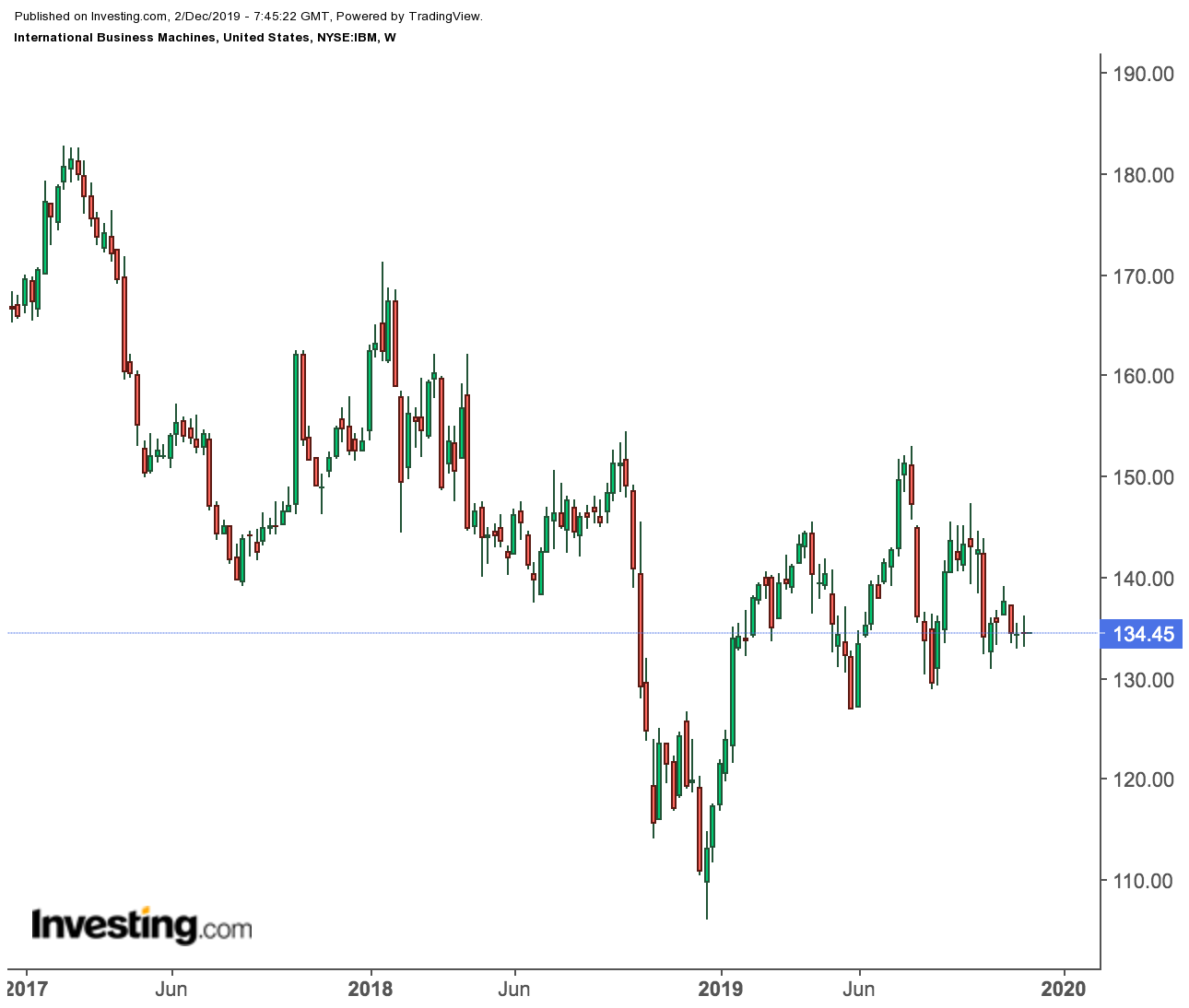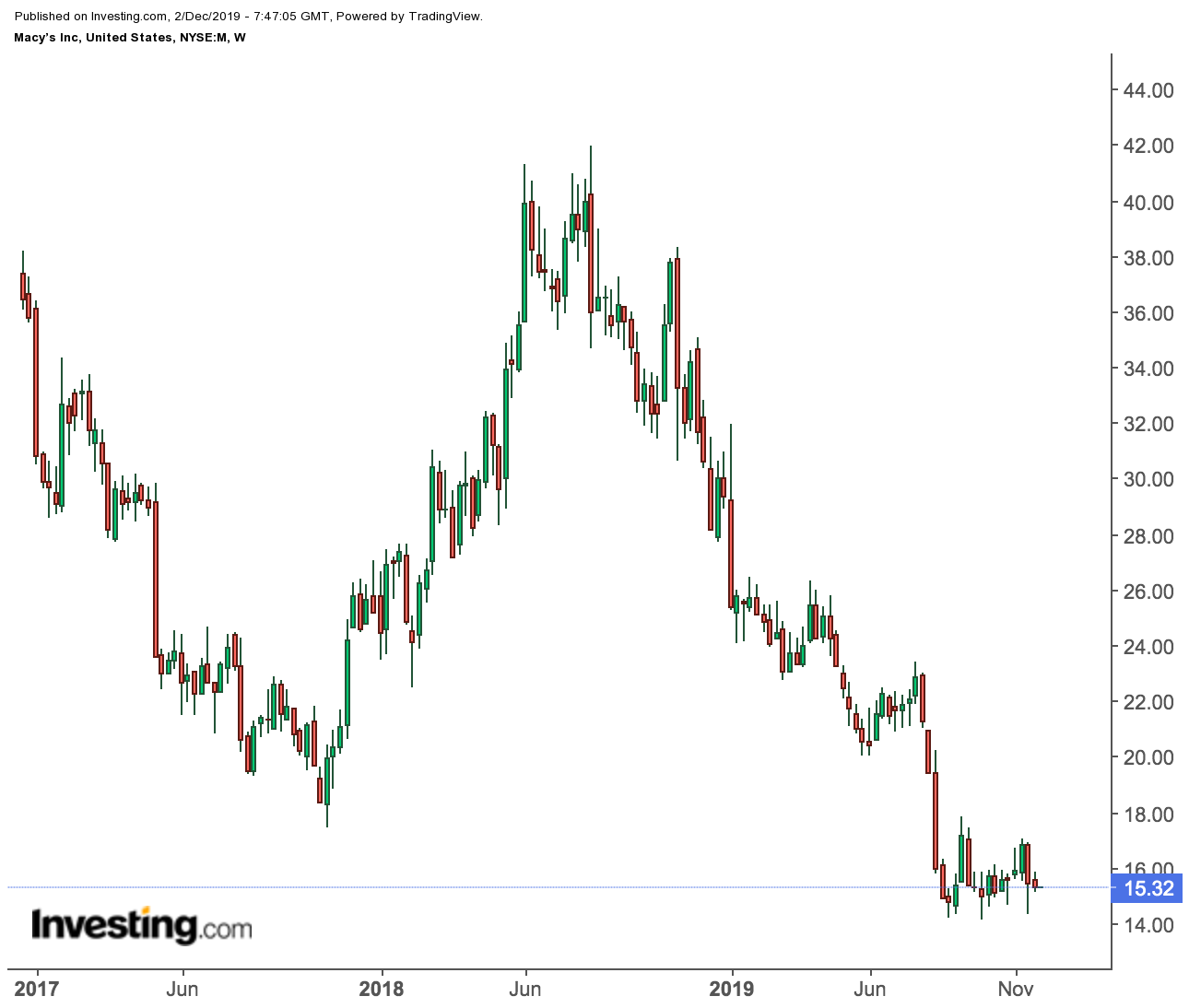Investing in turnaround stocks is a high-risk but potentially richly-rewarding strategy. If you do your homework right, you could end up with triple-digit returns.
Turnarounds can be described as the ultimate contrarian play since you’re betting on a company other investors don’t believe in. In most cases, these situations involve bankrupt companies that need to sell their profitable divisions, or companies that need to spin off unprofitable divisions, or ageing businesses that are finding it tough to compete with new entrants and maintain their dominant position.
Below, we short-list three troubled conglomerates struggling to restructure their businesses. If they succeed, investors betting on them could see good returns in 2020.
1. General Electric
The embattled industrial giant, General Electric Company (NYSE:GE), has divided analysts studying the success or otherwise of the company’s turnaround after demand for its products plunged and its debt level ballooned.
After plunging more than 60% up to late last year, GE stock is now on a slow and gradual recovery path. Trading at $11.27 at Friday’s close, it has gained about 55% in 2019, signaling that the new management’s restructuring plan is working.
The major boost to its stock’s move higher this year came when GE reported its third-quarter earnings last month, showing that its cash flow situation is improving and some of its industrial units have begun to show signs of life.
That performance is something the company’s new CEO, Larry Culp, has been promising since he took over more than a year ago. What made investors excited this time is the company’s improved forecast for its 2019 cash-flow — the second straight quarter GE was able to do that, helped by some signs of revival in its industrial businesses, which will generate as much as $2 billion in free cash this year. That amount is double its previously projected number of no more than $1 billion.
Despite these positive signs, analysts remain split on GE and its future still looks uncertain. J.P. Morgan, the biggest GE bear that accurately predicted its stock collapse three years ago, currently has a $5 price target. Its analysts said in a recent note that they do not believe that GE’s “management has set a bottom” for the performance of its businesses, adding that “GE is missing guidance on core business EBIT that was set in March.”
2. IBM
The century-old, tech giant, International Business Machines (NYSE:IBM) has been at such a crossroad for many years. Big Blue, as it's sometimes referred to colloquially, is struggling as technology and consumer preferences rapidly evolve, depriving this tech sector, legacy company of its main revenue sources.
Its sales peaked in 2011 and free cash flows did so a year later. Chief Executive Officer Ginni Rometty's strategies to refocus IBM’s business on the latest technologies, such as the cloud and artificial intelligence, helped bring about a significant transformation of the company. Indeed, during this period, IBM exited some markets, invested in cloud data centers and bought a number of companies to boost sales, bolster technology offerings and add troves of data to help train artificial intelligence (AI) algorithms.
Though IBM has so far been slow to capture a leading market share in the new areas of the digital economy, such as cloud computing, the company’s recent $34-billion purchase of Red Hat could prove a game-changer. This acquisition has added a relatively high-margin software business to IBM’s stable of offerings, especially led by the company’s hybrid cloud services to corporate customers.

The stock has been slowly responding to these efforts, rising 18% this year to $134.45 at Friday's close. Despite the recent upsurge, IBM stock still remains about 38% down from its record high in 2013, testing the patience of the company’s buy-and-hold investors. Analysts' average price target for this stock is $148.3 for the next 12 months, the lowest being at $120, the highest at $173.
3. Macy’s
Macy’s Inc (NYSE:M) is another troubled name that's in the middle of a turnaround, as it battles to win back customers at stores, amid surging e-commerce sales.
Macy’s CEO Jeffrey Gennette is trying a variety of tactics and new formats at its retail stores that have, so far, failed to produce results. For its third-quarter earnings report last month, the department-store chain lowered its guidance for the year,
The company has been spending heavily to lift its digital presence, adding more local merchandise and refreshing in-store fixtures. This has helped boost online sales, but hasn't been enough to put the retailer on a sustained growth path yet.
Along with its online push, Macy’s is also reducing expenses by closing stores. Still, in the longer term, the retailer needs to show that its cost-cutting, new spending and store remodeling are breathing fresh life into actual sales.

Investors, however, have shown a little faith. Trading at $15.32 a share on Friday, its stock has lost half of its value this year, continuing with the drastic plunge of the past five years after having hit a peak of $73.61 in 2015. The share price is close to analysts’ 12-month price target, with the lowest estimates calling for a further decline to $12 a share, while the highest call sees the stock rising to $22 a share.
Bottom Line
All three of these companies are making active and sustained efforts to turn their fortunes around and regain their footing in the ever-changing markets of today. The key element in turnaround investing is to recognise the right moment to jump in and get involved. GE, IBM and Macy's may well be hitting that crucial juncture soon and interested investors may find it's definitely worth their while to keep a close eye on them.
